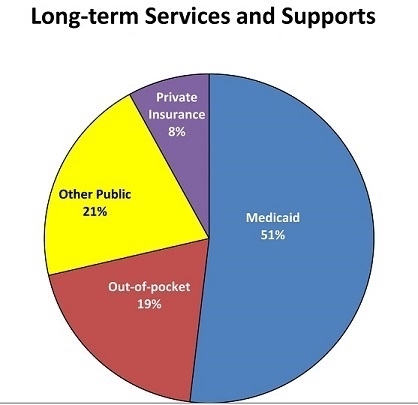Biden Must Reverse Trump’s Assault on Social Security

President Biden has inherited a Social Security program that is on a weaker footing than when Donald Trump took office. But the new President has pledged to strengthen and expand the program – both by working with Congress and through executive action. In fact, President Biden is well positioned to safeguard one of the landmark achievements of one of his most prominent Democratic predecessors, Franklin D. Roosevelt, whose son, Congressman James Roosevelt, Sr., founded our organization.
FDR’s grandson said it best when we endorsed President Biden last fall:
“Joe Biden has a record over four decades of being a strong supporter of Social Security. He was a strong voice in the Senate for the needs of seniors and it’s clear that the proposals that Biden and Harris are offering demonstrate a clear understanding of American seniors’ needs.” – James Roosevelt, Jr., vice-chair, National Committee to Preserve Social Security and Medicare advisory board
As if Americans needed a reminder of how crucial Social Security is, the pandemic – which disproportionately impacted seniors – has underlined its importance. Social Security is there for eligible older workers who lose their jobs or are forced to retire early by sickness or disability. It is there as a financial lifeline for retirees, who face higher medical expenses or loss of other income during the pandemic. It is there for families of workers when they become disabled, or pass away.
Despite promising to protect the program, former President Trump proposed slashing Social Security Disability Insurance (SSDI) by tens of billions of dollars in each of his annual budgets. The administration issued new rules erecting obstacles for disabled workers seeking to claim or retain benefits. The Social Security Administration even tried to politicize the adjudication of SSDI cases. The Biden administration will try to roll back these pernicious rules, but it may be a long and complex process.



The Trump administration issued rules making it harder for disabled workers to collect Social Security
Last August, President Trump interfered with Social Security’s main funding stream by issuing a reckless executive order deferring workers’ Social Security payroll taxes. Not only was the order economically ineffective; those workers (mostly federal employees) must now repay those deferred payroll taxes. In pursuing this policy, Trump tampered with the “earned benefit” nature of Social Security, which is funded by the payroll taxes that Americans contribute during their working lives.
Trump and Congressional Republicans failed to embrace commonsense proposals to increase Social Security’s revenue (without benefit cuts), setting the program on a sound financial course for the future. Before the pandemic, Social Security’s trust fund was projected to become exhausted by 2035, if Congress takes no pre-emptive action. Now, the COVID recession may hasten the trust funds’ insolvency date.
Conservatives remain fixated on the false assumption that Social Security drives the federal debt, and even proposed cutting ‘entitlements’ after enacting the 2017 tax windfall for the wealthy and big corporations, which swelled the deficit by some $2 trillion. The conservatives’ solution for “reforming” Social Security is to slash benefits for future seniors, who will rely on their benefits more than previous generations.



Rep. John Larson’s Social Security 2100 Act overlaps with many of President Biden’s proposals
We endorsed President Biden because of his commitment to seniors and their earned benefits. During the campaign, he called Social Security and Medicare “sacred obligations” and offered a commonsense list of Social Security proposals which the National Committee supports, including:
*Adjusting the Social Security payroll wage cap so that the wealthy pay their fair share.
*Providing the oldest beneficiaries – those who have been receiving retirement benefits for at least 20 years– with a higher monthly check.
*Giving eligible workers a guaranteed minimum benefit equal to at least 125% of the federal poverty level.
*Raising monthly benefits for widows and widowers by some 20%.
There is significant overlap between President Biden’s proposals and Rep. John Larson’s Social Security 2100 Act, which we fully endorse. Passing ambitious Social Security improvements may prove difficult in the Senate, where Democrats hold the slimmest of majorities.
We trust that President Biden and Social Security champions in Congress will continue to fight to strengthen and expand the program, leveraging the energy of seniors and their advocates, including the National Committee’s millions of members and supporters.
Trump Administration Couldn’t Resist Taking Parting Shots at Medicaid on Its Way Out



None of the programs that provide seniors with financial and health security are better off after four years of the Trump Administration. President Trump and his minions have undermined Social Security and traditional Medicare, and have left both programs in worse fiscal shape than when he took office. Medicaid has fared just as badly – or maybe worse – a target of the corporate, ideological conservatives entrusted with administering the program. Now, as the Los Angeles Times’ Michael Hiltzik reports, the Trump administration is taking parting shots at Medicaid on its way out of office.
Medicaid not only provides crucial health coverage to low-income Americans; it pays the lion’s share of long-term care services and supports for impoverished seniors. Without Medicaid, millions of seniors could not afford skilled nursing care – whether in institutions or in home/community care settings. Medicaid also ensures that financially challenged ‘near seniors’ (age 55+) can access affordable health care before they enter the Medicare program at age 65.



Medicaid pays more than half off the costs of all long-term care services and supports
The Centers for Medicare and Medicaid Services (CMS), under its director Seema Verma, apparently don’t believe in Medicaid’s core mission – a commitment by the federal government and the states to ensure society’s that least fortunate receive health care. In fact, Verma and her fellow ideologues have sought to weaken Medicaid through work requirements and experiments with block grants.
As Hiltzik observed in Thursday’s Los Angeles Times:
“Medicaid is second to none among government programs in the hostility it has attracted from the Trump administration. Virtually since Trump’s inauguration, he has taken steps aimed at throwing tens of thousands of Americans off the Medicaid rolls.” – Michael Hiltzik, Los Angeles Times, 1/14/21
Last fall, the administration approved work requirements for Medicaid in Georgia and Nebraska. Work requirements – a pet project of conservatives, including CMS administrator Seems Verma – have nothing to do with Medicaid’s mission, which is to provide health coverage for lower-income citizens who can’t afford it.
Contrary to the administration’s claims, work requirements impose unreasonable burdens on beneficiaries. As Hiltzik points out, work requirements “don’t reduce joblessness and they don’t improve people’s health.” Lower courts have already overturned such rules, but the Supreme Court will consider work requirements this term – which has health care advocates “scratching their heads.”
The administration has also championed block grants to the states for Medicaid, another policy idea promulgated by conservatives. Currently, the federal government matches state spending for Medicaid as their expenses fluctuate. But block grants would give the states fixed amounts of money, leaving them holding the bag as health care needs and costs fluctuate over time.
No matter, on January 8th CMS approved a block grant for Tennessee, under the false assumption that block grants would provide states more “flexibility” in administering their Medicaid programs.
Medicaid has been fulfilling its mission since it was signed into law 55 years ago. Health care advocates (and seniors’ advocates) know that if something’s not broken, it doesn’t need to be fixed. But corporatist politicians can’t seem to tolerate the government spending money to care for society’s most vulnerable. Former GOP House Speaker Paul Ryan was downright gleeful about the prospect of slashing Medicaid.



“We have been dreaming of this since I have been around, since you and I were drinking at a keg,” said Ryan in 2017 about the prospect of cutting Medicaid.
President Trump’s annual budgets called for cutting Medicaid by nearly $1 trillion. Fortunately, this administration is leaving office in less than a week, making way for a new President and new Congress who no doubt will strengthen – not undermine – the federal Medicaid program.
Seniors Win with Twin Senate Victories in Georgia



This week’s twin Democratic victories in the Georgia Senate runoffs were a big win for seniors. Voters elected two champions of older Americans, Jon Ossoff and Raphael Warnock, to the U.S. Senate — giving Democrats the majority in the upper house of Congress for the first time since 2014.
“Seniors in Georgia and throughout the country have reason to cheer the results of the runoff elections. We endorsed Jon Ossoff and Raphael Warnock because they understand seniors’ needs, especially during this time of crisis — and pledged to protect their lifeline social insurance programs, Social Security and Medicare.” – Max Richtman, president and CEO of the National Committee to Preserve Social Security and Medicare
In December, the National Committee to Preserve Social Security and Medicare launched a voter outreach campaign in Georgia to support both candidates. The campaign included radio ads, an online video, postcard mailings to thousands of National Committee members and supporters across Georgia, and social media outreach to the state’s voters.
Watch the National Committee campaign video:
As part of a new Senate majority, Ossoff and Warnock have pledged to defend seniors’ earned benefits – and expand them to meet current needs. Legislation to improve Social Security and Medicare, though far from assured of passage, could at minimum receive fair consideration in the U.S. Senate – where such efforts have been continually blocked by outgoing majority leader Mitch McConnell.
Most urgently, Senate Democratic leader Chuck Schumer (D-NY), has promised to enact $2,000 stimulus payments, which would help seniors who are financially strained by the pandemic, among other vulnerable citizens.
The new majority also has an historic opportunity to lower prescription drug prices by passing House legislation (H.R. 3) allowing Medicare to negotiate costs directly with Big Pharma. Seniors have been struggling to afford ever-rising drug costs, too often forced to choose between paying for medication or other essentials like groceries. Making matters worse, Big Pharma raised the prices of more than 300 drugs in the United States on January 1st. Medicare price negotiation is the single most effective tool for relieving the pain of sky-high drug costs.
“Medicare ought to be able to negotiate for lower prescription drugs, and the VA does this right now… It’s cut the cost of prescription drugs in half. Why can’t we do it for Medicare?” – GA Senator-elect Raphael Warnock
“The drug companies have… bought off politicians, who let the drug companies keep price-gouging the American citizens. Lowering the cost of medicine in America will be among my top priorities in the U.S. Senate.” – GA Senator-elect Jon Ossoff
One of the most likely results of the change in Senate control is the strengthening of the Affordable Care Act. The ACA helped seniors by improving Medicare and limiting insurance companies’ ability to overcharge older customers for coverage – along with protecting patients with pre-existing conditions. President Trump and his party have spent four years trying to undermine the ACA; President-elect Biden and a Democratic Senate can fortify it, and possibly protect the ACA from being overturned by the Supreme Court.
The Georgia runoff results were historic in several ways. Rev. Warnock is the first African-American to be elected to the U.S. Senate from Georgia; Jon Ossoff the first Jewish-American with that distinction. Black voters, in particular, helped propel Ossoff and Warnock to victory in a runoff election that saw record turnout.
“Today, we celebrate. Tomorrow, we begin to seize the opportunity Georgia voters have given us to enhance the financial and health security of workers and retirees alike, at a time when both are at serious risk.” – Max Richtman
Georgia Seniors Need Warnock and Ossoff in the Senate



While it’s true that control of the U.S. Senate rests on the outcome of the Georgia runoff elections, there is something more immediate at stake for the state’s voters – especially seniors. The future of their vital Social Security and Medicare benefits – earned after a lifetime of hard work – rides on the results of tomorrow’s runoffs.
Perhaps at no other time since the Great Depression have seniors’ earned benefits been so crucial. The pandemic has taken a heavy toll on seniors – both physically and financially. Before and during this crisis, Social Security and Medicare have functioned as social insurance lifelines, which is, of course, their original purpose. Without Social Security, the poverty rate in Georgia would be a whopping 44%. (With those benefits, it is 13%.) For Black and LatinX seniors – who are especially reliant on Social Security for income – the poverty rate would approach or exceed 50% without their earned benefits.
Valuable as they are, Social Security and Medicare both need enhancements to meet seniors’ actual needs. Today, too many seniors find themselves unable to afford basics like housing, food, and healthcare, caught between modest fixed incomes and escalating living costs. Nearly 54 percent of older Georgians “struggle to pay for basic necessities,” according to a report by the Economic Policy Institute (EPI). “Only two other states have a greater proportion of economically vulnerable residents age 65 and older,” says EPI.
President-elect Biden and Georgia’s two Democratic Senate candidates recognize that seniors are in a serious financial vise. They want to expand Social Security and Medicare benefits to reflect the realities of growing old in American today. But conservatives insist that both programs must be “reformed” – which really means cut and privatized. Republicans even hinted that seniors’ earned benefits should be reduced to help pay for the Trump/GOP tax cuts of 2017, which inordinately benefited the wealthy and big, profitable corporations.
Incumbent GOP Senator David Perdue pays lip service to protecting Social Security, but has suggested that benefits for future retirees may have to be cut. “Their deal is going to have to be different,” he said. He also has said that Social Security, Medicare and Medicaid should no longer be protected as mandatory spending programs. For her part, Senator Kelly Loeffler endorsed President Trump’s reckless payroll tax deferral of last August, which reduced the flow of revenue into Social Security and will force cash-strapped workers to repay those funds in early 2021.



The Democratic candidates believe otherwise. Rev. Raphael Warnock and Jon Ossoff have pledged to protect seniors’ earned benefits from cuts. “We’ve seen those in Washington willing to give trillion-dollar tax cuts to their corporate friends while sacrificing the future of Medicare and Social Security in the process. I’ll stand up to that,” says Rev. Warnock.
“These are earned benefits that Americans have paid into over their entire lives,” says Ossoff. “I will oppose efforts to cut these vital… benefits that so many of our seniors depend upon. And I’ll work to strengthen and protect those benefits.”



Warnock and Ossoff have backed up their statements by supporting policies that will boost seniors’ financial and health security. Both Democratic candidates want to see Social Security and Medicare expanded. Both believe that seniors should not be forced to choose between prescription drugs and groceries – or compelled to cut pills in half to try to ration medications. They know that the best way to relieve the pain of soaring drug prices is to allow Medicare to negotiate costs with Big Pharma.
Seniors have suffered enough during the pandemic. They need champions in the U.S. Senate like Rev. Warnock and Jon Ossoff. If both candidates win, there is a far greater chance that the improvements older Georgians badly need will become law: increased Social Security benefits and cost-of-living adjustments, expanded Medicare benefits, a strengthened Affordable Care Act, and lower prescription drug prices. Georgians are uniquely positioned to make a real change. For the sake of current and future seniors throughout the state, let’s hope that they do.
********************************************************
Watch the National Committee’s endorsement video of Jon Ossoff and Raphael Warnock here.
COVID Relief Deal Will Help Struggling Seniors



***THIS IS AN UPDATE OF A BLOG POST ORIGINALLY
PUBLISHED ON FRIDAY, DECEMBER 18, 2020***
While not as comprehensive as advocates had hoped, the new $900B COVID relief deal announced by Congressional leadership includes some much-needed help for American seniors. Here is what is in the relief bill and why it matters for seniors:
STIMULUS PAYMENTS
After initial resistance from Republicans, the relief package now includes another round of stimulus payments, $600 for adults and $600 per child for individuals earning up to $75,000. Though not as generous as last summer’s $1,200 payments, any additional money would no doubt help seniors living on fixed incomes who face rising costs for everything from housing to prescription drugs. Most Social Security beneficiaries will receive their stimulus payments automatically, though some will get paid sooner than others.
“How fast that money is received is largely dependent on whether the recipient already uses direct deposit for their monthly benefit payment. If they do, the stimulus cash will likely be credited to their account automatically. If Social Security benefits are sent by mail, however, a longer wait is expected.” – CNBC, 12/19/20



UNEMPLOYMENT ASSISTANCE
In its current form, the relief package includes extended unemployment benefits in the amount of $300 per week. Additional unemployment assistance will be a lifeline for older workers who may have been furloughed or fallen ill with COVID, who are not yet eligible for Social Security.
RENTAL ASSISTANCE
The proposal as it now stands provides $25 billion in emergency assistance for Americans struggling to pay rent; it would also extend a ban on evictions through January, 2021. This could represent real relief to seniors, who have been renting homes in greater numbers during the past decade or so.
VACCINE FUNDING
According to The Hill newspaper, “The agreement includes $20 billion for the purchase of COVID vaccines, $8 billion for vaccine distribution, $20 billion for states to conduct testing and $20 billion in extra federal relief for health care providers.” This is good news for long-term care residents and staff – as well as for older Americans not in long-term – who await inoculation.
WHAT THE BILL DOESN’T INCLUDE
The relief deal excludes other high-priority items that Democrats have advocated – especially additional federal aid to state and local governments reeling from the COVID crisis. When the 117th Congress convenes in January, the National Committee also would like lawmakers to fix the “notch” in Social Security benefits for workers turning 60, and provide Social Security beneficiaries with an emergency bump in benefits. NCPSSM also supports a bill from Rep. Peter DeFazio (D-OR) to enact a 3% Social Security cost-of-living adjustment to make up for paltry COLAs in recent years (including the meager 1.3% scheduled for 2021).
Nevertheless, the COVID package should be “welcome relief to millions of Americans, including seniors who have been hurt the most by the pandemic,” said Dan Adcock, the National Committee’s director of government relations and policy.
Biden Must Reverse Trump’s Assault on Social Security



President Biden has inherited a Social Security program that is on a weaker footing than when Donald Trump took office. But the new President has pledged to strengthen and expand the program – both by working with Congress and through executive action. In fact, President Biden is well positioned to safeguard one of the landmark achievements of one of his most prominent Democratic predecessors, Franklin D. Roosevelt, whose son, Congressman James Roosevelt, Sr., founded our organization.
FDR’s grandson said it best when we endorsed President Biden last fall:
“Joe Biden has a record over four decades of being a strong supporter of Social Security. He was a strong voice in the Senate for the needs of seniors and it’s clear that the proposals that Biden and Harris are offering demonstrate a clear understanding of American seniors’ needs.” – James Roosevelt, Jr., vice-chair, National Committee to Preserve Social Security and Medicare advisory board
As if Americans needed a reminder of how crucial Social Security is, the pandemic – which disproportionately impacted seniors – has underlined its importance. Social Security is there for eligible older workers who lose their jobs or are forced to retire early by sickness or disability. It is there as a financial lifeline for retirees, who face higher medical expenses or loss of other income during the pandemic. It is there for families of workers when they become disabled, or pass away.
Despite promising to protect the program, former President Trump proposed slashing Social Security Disability Insurance (SSDI) by tens of billions of dollars in each of his annual budgets. The administration issued new rules erecting obstacles for disabled workers seeking to claim or retain benefits. The Social Security Administration even tried to politicize the adjudication of SSDI cases. The Biden administration will try to roll back these pernicious rules, but it may be a long and complex process.



The Trump administration issued rules making it harder for disabled workers to collect Social Security
Last August, President Trump interfered with Social Security’s main funding stream by issuing a reckless executive order deferring workers’ Social Security payroll taxes. Not only was the order economically ineffective; those workers (mostly federal employees) must now repay those deferred payroll taxes. In pursuing this policy, Trump tampered with the “earned benefit” nature of Social Security, which is funded by the payroll taxes that Americans contribute during their working lives.
Trump and Congressional Republicans failed to embrace commonsense proposals to increase Social Security’s revenue (without benefit cuts), setting the program on a sound financial course for the future. Before the pandemic, Social Security’s trust fund was projected to become exhausted by 2035, if Congress takes no pre-emptive action. Now, the COVID recession may hasten the trust funds’ insolvency date.
Conservatives remain fixated on the false assumption that Social Security drives the federal debt, and even proposed cutting ‘entitlements’ after enacting the 2017 tax windfall for the wealthy and big corporations, which swelled the deficit by some $2 trillion. The conservatives’ solution for “reforming” Social Security is to slash benefits for future seniors, who will rely on their benefits more than previous generations.



Rep. John Larson’s Social Security 2100 Act overlaps with many of President Biden’s proposals
We endorsed President Biden because of his commitment to seniors and their earned benefits. During the campaign, he called Social Security and Medicare “sacred obligations” and offered a commonsense list of Social Security proposals which the National Committee supports, including:
*Adjusting the Social Security payroll wage cap so that the wealthy pay their fair share.
*Providing the oldest beneficiaries – those who have been receiving retirement benefits for at least 20 years– with a higher monthly check.
*Giving eligible workers a guaranteed minimum benefit equal to at least 125% of the federal poverty level.
*Raising monthly benefits for widows and widowers by some 20%.
There is significant overlap between President Biden’s proposals and Rep. John Larson’s Social Security 2100 Act, which we fully endorse. Passing ambitious Social Security improvements may prove difficult in the Senate, where Democrats hold the slimmest of majorities.
We trust that President Biden and Social Security champions in Congress will continue to fight to strengthen and expand the program, leveraging the energy of seniors and their advocates, including the National Committee’s millions of members and supporters.
Trump Administration Couldn’t Resist Taking Parting Shots at Medicaid on Its Way Out



None of the programs that provide seniors with financial and health security are better off after four years of the Trump Administration. President Trump and his minions have undermined Social Security and traditional Medicare, and have left both programs in worse fiscal shape than when he took office. Medicaid has fared just as badly – or maybe worse – a target of the corporate, ideological conservatives entrusted with administering the program. Now, as the Los Angeles Times’ Michael Hiltzik reports, the Trump administration is taking parting shots at Medicaid on its way out of office.
Medicaid not only provides crucial health coverage to low-income Americans; it pays the lion’s share of long-term care services and supports for impoverished seniors. Without Medicaid, millions of seniors could not afford skilled nursing care – whether in institutions or in home/community care settings. Medicaid also ensures that financially challenged ‘near seniors’ (age 55+) can access affordable health care before they enter the Medicare program at age 65.



Medicaid pays more than half off the costs of all long-term care services and supports
The Centers for Medicare and Medicaid Services (CMS), under its director Seema Verma, apparently don’t believe in Medicaid’s core mission – a commitment by the federal government and the states to ensure society’s that least fortunate receive health care. In fact, Verma and her fellow ideologues have sought to weaken Medicaid through work requirements and experiments with block grants.
As Hiltzik observed in Thursday’s Los Angeles Times:
“Medicaid is second to none among government programs in the hostility it has attracted from the Trump administration. Virtually since Trump’s inauguration, he has taken steps aimed at throwing tens of thousands of Americans off the Medicaid rolls.” – Michael Hiltzik, Los Angeles Times, 1/14/21
Last fall, the administration approved work requirements for Medicaid in Georgia and Nebraska. Work requirements – a pet project of conservatives, including CMS administrator Seems Verma – have nothing to do with Medicaid’s mission, which is to provide health coverage for lower-income citizens who can’t afford it.
Contrary to the administration’s claims, work requirements impose unreasonable burdens on beneficiaries. As Hiltzik points out, work requirements “don’t reduce joblessness and they don’t improve people’s health.” Lower courts have already overturned such rules, but the Supreme Court will consider work requirements this term – which has health care advocates “scratching their heads.”
The administration has also championed block grants to the states for Medicaid, another policy idea promulgated by conservatives. Currently, the federal government matches state spending for Medicaid as their expenses fluctuate. But block grants would give the states fixed amounts of money, leaving them holding the bag as health care needs and costs fluctuate over time.
No matter, on January 8th CMS approved a block grant for Tennessee, under the false assumption that block grants would provide states more “flexibility” in administering their Medicaid programs.
Medicaid has been fulfilling its mission since it was signed into law 55 years ago. Health care advocates (and seniors’ advocates) know that if something’s not broken, it doesn’t need to be fixed. But corporatist politicians can’t seem to tolerate the government spending money to care for society’s most vulnerable. Former GOP House Speaker Paul Ryan was downright gleeful about the prospect of slashing Medicaid.



“We have been dreaming of this since I have been around, since you and I were drinking at a keg,” said Ryan in 2017 about the prospect of cutting Medicaid.
President Trump’s annual budgets called for cutting Medicaid by nearly $1 trillion. Fortunately, this administration is leaving office in less than a week, making way for a new President and new Congress who no doubt will strengthen – not undermine – the federal Medicaid program.
Seniors Win with Twin Senate Victories in Georgia



This week’s twin Democratic victories in the Georgia Senate runoffs were a big win for seniors. Voters elected two champions of older Americans, Jon Ossoff and Raphael Warnock, to the U.S. Senate — giving Democrats the majority in the upper house of Congress for the first time since 2014.
“Seniors in Georgia and throughout the country have reason to cheer the results of the runoff elections. We endorsed Jon Ossoff and Raphael Warnock because they understand seniors’ needs, especially during this time of crisis — and pledged to protect their lifeline social insurance programs, Social Security and Medicare.” – Max Richtman, president and CEO of the National Committee to Preserve Social Security and Medicare
In December, the National Committee to Preserve Social Security and Medicare launched a voter outreach campaign in Georgia to support both candidates. The campaign included radio ads, an online video, postcard mailings to thousands of National Committee members and supporters across Georgia, and social media outreach to the state’s voters.
Watch the National Committee campaign video:
As part of a new Senate majority, Ossoff and Warnock have pledged to defend seniors’ earned benefits – and expand them to meet current needs. Legislation to improve Social Security and Medicare, though far from assured of passage, could at minimum receive fair consideration in the U.S. Senate – where such efforts have been continually blocked by outgoing majority leader Mitch McConnell.
Most urgently, Senate Democratic leader Chuck Schumer (D-NY), has promised to enact $2,000 stimulus payments, which would help seniors who are financially strained by the pandemic, among other vulnerable citizens.
The new majority also has an historic opportunity to lower prescription drug prices by passing House legislation (H.R. 3) allowing Medicare to negotiate costs directly with Big Pharma. Seniors have been struggling to afford ever-rising drug costs, too often forced to choose between paying for medication or other essentials like groceries. Making matters worse, Big Pharma raised the prices of more than 300 drugs in the United States on January 1st. Medicare price negotiation is the single most effective tool for relieving the pain of sky-high drug costs.
“Medicare ought to be able to negotiate for lower prescription drugs, and the VA does this right now… It’s cut the cost of prescription drugs in half. Why can’t we do it for Medicare?” – GA Senator-elect Raphael Warnock
“The drug companies have… bought off politicians, who let the drug companies keep price-gouging the American citizens. Lowering the cost of medicine in America will be among my top priorities in the U.S. Senate.” – GA Senator-elect Jon Ossoff
One of the most likely results of the change in Senate control is the strengthening of the Affordable Care Act. The ACA helped seniors by improving Medicare and limiting insurance companies’ ability to overcharge older customers for coverage – along with protecting patients with pre-existing conditions. President Trump and his party have spent four years trying to undermine the ACA; President-elect Biden and a Democratic Senate can fortify it, and possibly protect the ACA from being overturned by the Supreme Court.
The Georgia runoff results were historic in several ways. Rev. Warnock is the first African-American to be elected to the U.S. Senate from Georgia; Jon Ossoff the first Jewish-American with that distinction. Black voters, in particular, helped propel Ossoff and Warnock to victory in a runoff election that saw record turnout.
“Today, we celebrate. Tomorrow, we begin to seize the opportunity Georgia voters have given us to enhance the financial and health security of workers and retirees alike, at a time when both are at serious risk.” – Max Richtman
Georgia Seniors Need Warnock and Ossoff in the Senate



While it’s true that control of the U.S. Senate rests on the outcome of the Georgia runoff elections, there is something more immediate at stake for the state’s voters – especially seniors. The future of their vital Social Security and Medicare benefits – earned after a lifetime of hard work – rides on the results of tomorrow’s runoffs.
Perhaps at no other time since the Great Depression have seniors’ earned benefits been so crucial. The pandemic has taken a heavy toll on seniors – both physically and financially. Before and during this crisis, Social Security and Medicare have functioned as social insurance lifelines, which is, of course, their original purpose. Without Social Security, the poverty rate in Georgia would be a whopping 44%. (With those benefits, it is 13%.) For Black and LatinX seniors – who are especially reliant on Social Security for income – the poverty rate would approach or exceed 50% without their earned benefits.
Valuable as they are, Social Security and Medicare both need enhancements to meet seniors’ actual needs. Today, too many seniors find themselves unable to afford basics like housing, food, and healthcare, caught between modest fixed incomes and escalating living costs. Nearly 54 percent of older Georgians “struggle to pay for basic necessities,” according to a report by the Economic Policy Institute (EPI). “Only two other states have a greater proportion of economically vulnerable residents age 65 and older,” says EPI.
President-elect Biden and Georgia’s two Democratic Senate candidates recognize that seniors are in a serious financial vise. They want to expand Social Security and Medicare benefits to reflect the realities of growing old in American today. But conservatives insist that both programs must be “reformed” – which really means cut and privatized. Republicans even hinted that seniors’ earned benefits should be reduced to help pay for the Trump/GOP tax cuts of 2017, which inordinately benefited the wealthy and big, profitable corporations.
Incumbent GOP Senator David Perdue pays lip service to protecting Social Security, but has suggested that benefits for future retirees may have to be cut. “Their deal is going to have to be different,” he said. He also has said that Social Security, Medicare and Medicaid should no longer be protected as mandatory spending programs. For her part, Senator Kelly Loeffler endorsed President Trump’s reckless payroll tax deferral of last August, which reduced the flow of revenue into Social Security and will force cash-strapped workers to repay those funds in early 2021.



The Democratic candidates believe otherwise. Rev. Raphael Warnock and Jon Ossoff have pledged to protect seniors’ earned benefits from cuts. “We’ve seen those in Washington willing to give trillion-dollar tax cuts to their corporate friends while sacrificing the future of Medicare and Social Security in the process. I’ll stand up to that,” says Rev. Warnock.
“These are earned benefits that Americans have paid into over their entire lives,” says Ossoff. “I will oppose efforts to cut these vital… benefits that so many of our seniors depend upon. And I’ll work to strengthen and protect those benefits.”



Warnock and Ossoff have backed up their statements by supporting policies that will boost seniors’ financial and health security. Both Democratic candidates want to see Social Security and Medicare expanded. Both believe that seniors should not be forced to choose between prescription drugs and groceries – or compelled to cut pills in half to try to ration medications. They know that the best way to relieve the pain of soaring drug prices is to allow Medicare to negotiate costs with Big Pharma.
Seniors have suffered enough during the pandemic. They need champions in the U.S. Senate like Rev. Warnock and Jon Ossoff. If both candidates win, there is a far greater chance that the improvements older Georgians badly need will become law: increased Social Security benefits and cost-of-living adjustments, expanded Medicare benefits, a strengthened Affordable Care Act, and lower prescription drug prices. Georgians are uniquely positioned to make a real change. For the sake of current and future seniors throughout the state, let’s hope that they do.
********************************************************
Watch the National Committee’s endorsement video of Jon Ossoff and Raphael Warnock here.
COVID Relief Deal Will Help Struggling Seniors



***THIS IS AN UPDATE OF A BLOG POST ORIGINALLY
PUBLISHED ON FRIDAY, DECEMBER 18, 2020***
While not as comprehensive as advocates had hoped, the new $900B COVID relief deal announced by Congressional leadership includes some much-needed help for American seniors. Here is what is in the relief bill and why it matters for seniors:
STIMULUS PAYMENTS
After initial resistance from Republicans, the relief package now includes another round of stimulus payments, $600 for adults and $600 per child for individuals earning up to $75,000. Though not as generous as last summer’s $1,200 payments, any additional money would no doubt help seniors living on fixed incomes who face rising costs for everything from housing to prescription drugs. Most Social Security beneficiaries will receive their stimulus payments automatically, though some will get paid sooner than others.
“How fast that money is received is largely dependent on whether the recipient already uses direct deposit for their monthly benefit payment. If they do, the stimulus cash will likely be credited to their account automatically. If Social Security benefits are sent by mail, however, a longer wait is expected.” – CNBC, 12/19/20



UNEMPLOYMENT ASSISTANCE
In its current form, the relief package includes extended unemployment benefits in the amount of $300 per week. Additional unemployment assistance will be a lifeline for older workers who may have been furloughed or fallen ill with COVID, who are not yet eligible for Social Security.
RENTAL ASSISTANCE
The proposal as it now stands provides $25 billion in emergency assistance for Americans struggling to pay rent; it would also extend a ban on evictions through January, 2021. This could represent real relief to seniors, who have been renting homes in greater numbers during the past decade or so.
VACCINE FUNDING
According to The Hill newspaper, “The agreement includes $20 billion for the purchase of COVID vaccines, $8 billion for vaccine distribution, $20 billion for states to conduct testing and $20 billion in extra federal relief for health care providers.” This is good news for long-term care residents and staff – as well as for older Americans not in long-term – who await inoculation.
WHAT THE BILL DOESN’T INCLUDE
The relief deal excludes other high-priority items that Democrats have advocated – especially additional federal aid to state and local governments reeling from the COVID crisis. When the 117th Congress convenes in January, the National Committee also would like lawmakers to fix the “notch” in Social Security benefits for workers turning 60, and provide Social Security beneficiaries with an emergency bump in benefits. NCPSSM also supports a bill from Rep. Peter DeFazio (D-OR) to enact a 3% Social Security cost-of-living adjustment to make up for paltry COLAs in recent years (including the meager 1.3% scheduled for 2021).
Nevertheless, the COVID package should be “welcome relief to millions of Americans, including seniors who have been hurt the most by the pandemic,” said Dan Adcock, the National Committee’s director of government relations and policy.


